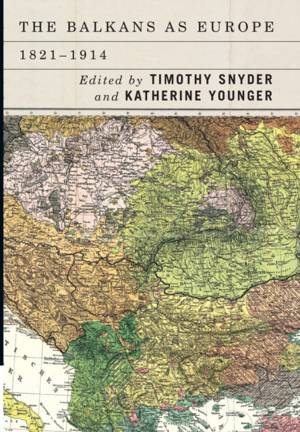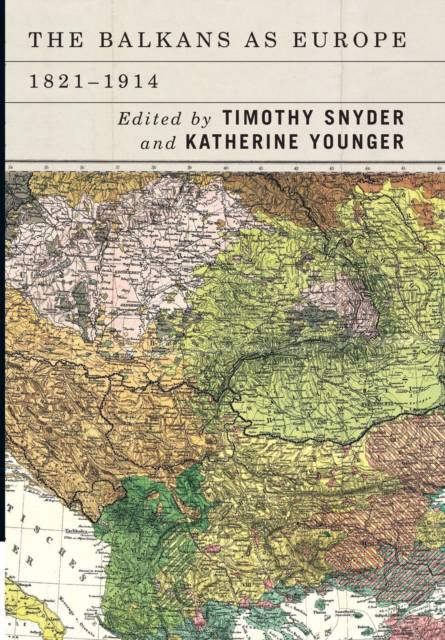
- Retrait gratuit dans votre magasin Club
- 7.000.000 titres dans notre catalogue
- Payer en toute sécurité
- Toujours un magasin près de chez vous
- Retrait gratuit dans votre magasin Club
- 7.000.0000 titres dans notre catalogue
- Payer en toute sécurité
- Toujours un magasin près de chez vous
The Balkans as Europe, 1821-1914
97,45 €
+ 194 points
Description
WINNER: 2019 CHOICE Outstanding Academic Title Award Focusing on state formation and the identity-geopolitics relationship, makes the case that the Balkans were at the forefront of European history in the century before World War I This collection of essays places the Balkans at the center of European developments, not as a conflict-ridden problem zone, but rather as a full-fledged European region. Contrary to the commonly held perception, contributors to the volume argue, the Balkans did not lag behind the rest of European history, but rather anticipated many (West) European developments in the decades before and after 1900. In the second half of the nineteenth century, the Balkan states became fully independent nation-states. As they worked to consolidate their sovereignty, these countries looked beyond traditional state formation strategies to alternative visions rooted in militarism or national political economy, and not only succeeded on their own terms but changed Europe and the world beginning in 1912-14. As the Ottoman Empire weakened and ever more kinds of informal diplomacy were practiced on its territory by morepowerful states, relationships between identity and geopolitics were also transformed. The result, as the contributors demonstrate, was a phenomenon that would come to pervade the whole of Europe by the 1920s and 1930s: the creeping substitution of ideas of religion and ethnicity for the idea of state belonging or subjecthood. CONTRIBUTORS: Ulf Brunnbauer, Holly Case, Dessislava Lilova, John Paul Newman, Roumiana Preshlenova, Dominique KirchnerReill, Timothy Snyder Timothy Snyder is Richard C. Levin Professor of History at Yale University. Katherine Younger is a research associate at the Institute for Human Sciences (IWM) in Vienna, Austria.
Spécifications
Parties prenantes
- Editeur:
Contenu
- Nombre de pages :
- 190
- Langue:
- Anglais
- Collection :
- Tome:
- n° 21
Caractéristiques
- EAN:
- 9781580469159
- Date de parution :
- 15-05-18
- Format:
- Livre relié
- Format numérique:
- Genaaid
- Dimensions :
- 157 mm x 231 mm
- Poids :
- 521 g

Les avis
Nous publions uniquement les avis qui respectent les conditions requises. Consultez nos conditions pour les avis.





